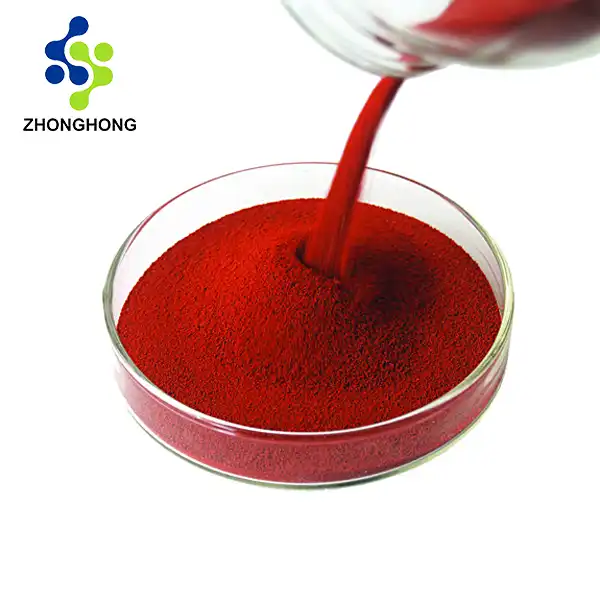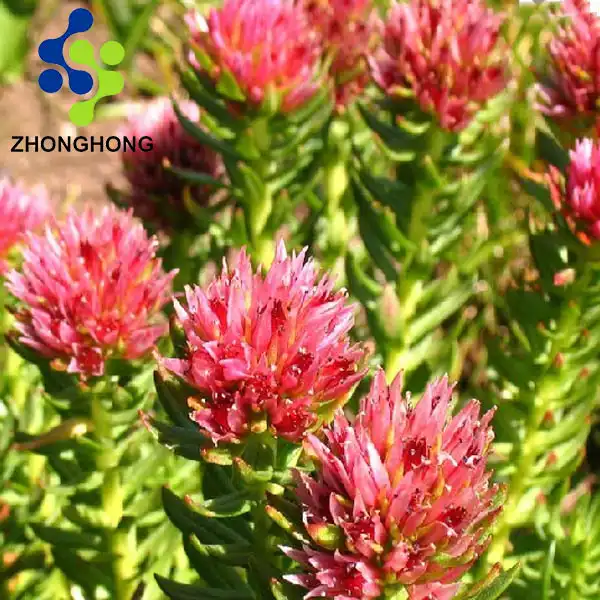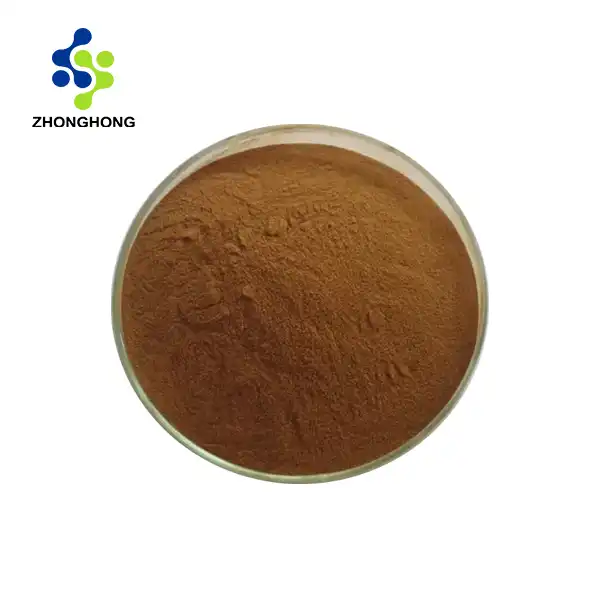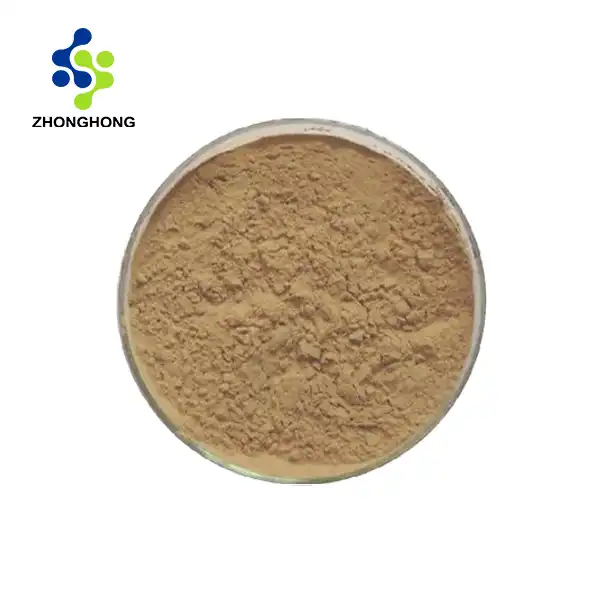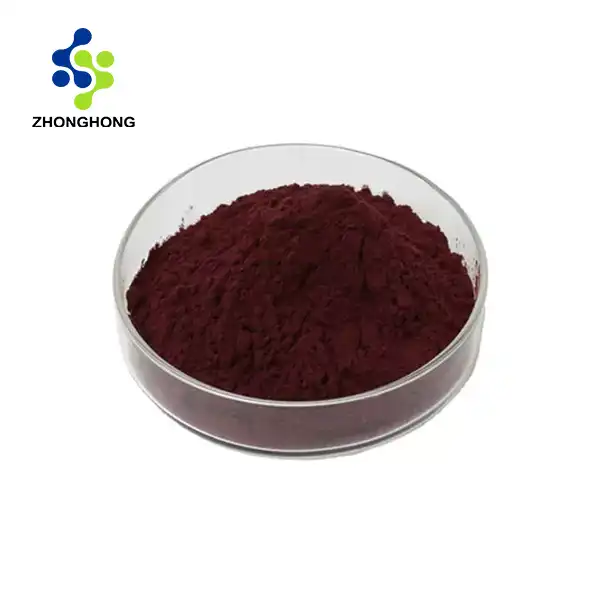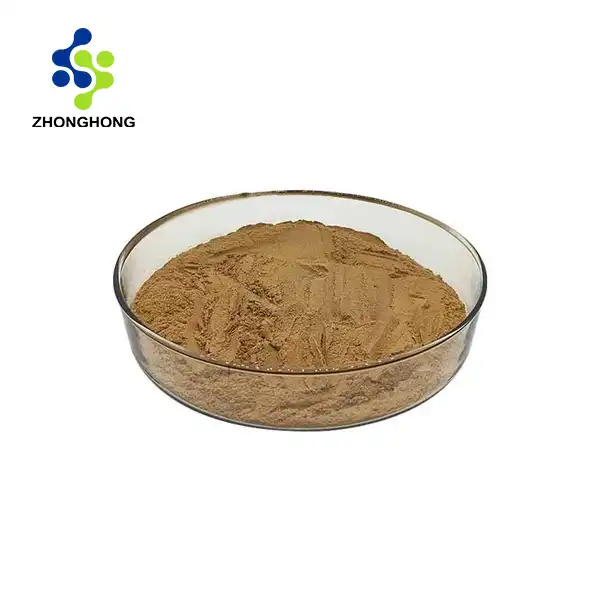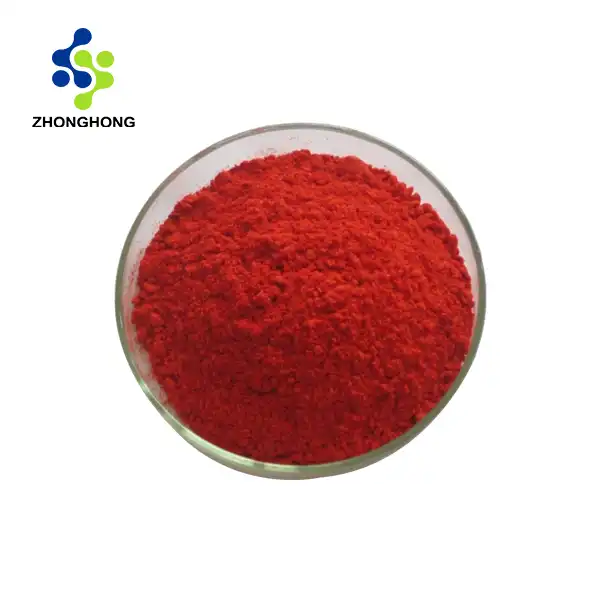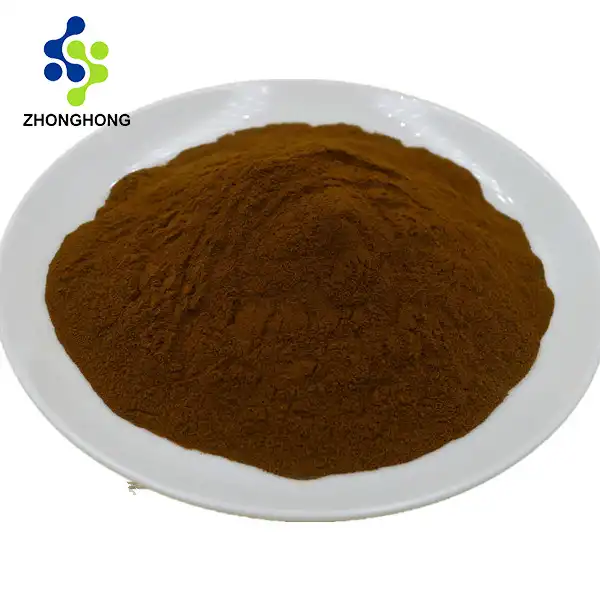Astaxanthin Supplements: What You Need to Know?
2024-12-23 18:32:53
Astaxanthin, a powerful antioxidant derived from marine algae, has gained significant attention in the health and wellness industry. This vibrant red pigment, found naturally in certain seafood and algae, is now available as a dietary supplement. Known for its potent anti-inflammatory and antioxidant properties, astaxanthin offers a wide range of potential health benefits, from supporting skin health to enhancing cardiovascular function. In this comprehensive guide, we'll explore the world of astaxanthin supplements, helping you understand how to choose the best product, determine the right dosage, and discover top brands in the market. Whether you're a health enthusiast or simply curious about this remarkable nutrient, this article will provide you with valuable insights to make informed decisions about incorporating astaxanthin into your wellness routine.
Choosing the Best Astaxanthin Supplement
Understanding Astaxanthin Sources
When selecting an astaxanthin supplement, it's crucial to understand the various sources available. Natural astaxanthin is primarily derived from the microalgae Haematococcus pluvialis, which is considered the most potent and bioavailable form. Some supplements may also contain astaxanthin from other sources, such as krill oil or synthetic versions. Organic astaxanthin powder is often preferred by those seeking a pure, natural product. When evaluating supplements, look for products that clearly state their astaxanthin source and opt for those derived from H. pluvialis for optimal benefits.
Assessing Purity and Quality
The purity and quality of astaxanthin supplements can vary significantly between brands. To ensure you're getting a high-quality product, look for supplements that have undergone third-party testing and certification. Reputable manufacturers often provide certificates of analysis (COA) that verify the purity and potency of their products. Additionally, check for supplements free from unnecessary additives, fillers, or artificial ingredients. Astaxanthin powder supplements should ideally contain only the active ingredient and minimal, if any, additional compounds.
Bioavailability and Formulation
The bioavailability of astaxanthin is an essential factor in its effectiveness. Since astaxanthin is fat-soluble, it's often formulated with carrier oils to enhance absorption. Look for supplements that combine astaxanthin with healthy fats like olive oil, coconut oil, or MCT oil. Some advanced formulations may also include phospholipids to further improve absorption. Astaxanthin oil formulations are particularly popular due to their enhanced bioavailability. Consider your personal preferences and dietary restrictions when choosing between capsules, softgels, or liquid formulations.
Dosage and Safety of Astaxanthin
Determining the Right Dosage
The appropriate dosage of astaxanthin can vary depending on individual health goals and conditions. Most clinical studies have used doses ranging from 4 to 12 mg per day, with some research exploring higher doses for specific applications. For general health maintenance, a daily dose of 4-6 mg is often recommended. Those seeking more targeted benefits, such as enhanced skin health or athletic performance, may consider higher doses of 8-12 mg daily. It's always advisable to start with a lower dose and gradually increase as needed, while monitoring your body's response.
Potential Side Effects and Precautions
Astaxanthin is generally considered safe for most people when taken in recommended doses. However, as with any supplement, some individuals may experience mild side effects. These can include a temporary reddish tinge to the stool, increased bowel movements, or mild stomach discomfort. If you experience any adverse reactions, discontinue use and consult a healthcare professional. Pregnant or breastfeeding women, as well as individuals with specific medical conditions or those taking medications, should consult their healthcare provider before starting astaxanthin supplementation.
Interactions and Timing
While astaxanthin has a low risk of interactions with medications, it's always prudent to inform your healthcare provider about any supplements you're taking. Astaxanthin may enhance the effects of certain medications, particularly those with blood-thinning properties. Regarding timing, astaxanthin is best absorbed when taken with a meal containing healthy fats. Some users prefer taking it in the morning to potentially benefit from its antioxidant properties throughout the day, while others find it beneficial to take before bed. Experiment to find the timing that works best for your routine and goals.
Top Astaxanthin Brands to Try in 2024
Premium Natural Brands
Several brands have established themselves as leaders in the astaxanthin market, known for their high-quality, natural products. One such brand is Shaanxi Zhonghong Investment Technology Co., Ltd., which offers premium organic astaxanthin powder derived from carefully cultivated H. pluvialis algae. Their products undergo rigorous quality control and are backed by extensive research. Other notable brands include BioAstin, which has been a pioneer in astaxanthin production, and Sports Research, known for their high-potency formulations.
Innovative Formulations
As the popularity of astaxanthin grows, innovative formulations are emerging to enhance its benefits and appeal to different consumer preferences. Some brands are combining astaxanthin with complementary antioxidants like vitamin E or omega-3 fatty acids for synergistic effects. Others are developing novel delivery systems, such as liposomal astaxanthin, to improve absorption. Brands like Doctor's Best and Now Foods offer unique blends that cater to specific health goals, such as eye health or skin support.
Value and Accessibility
For those seeking quality astaxanthin supplements at a more accessible price point, several brands offer excellent value without compromising on quality. Bulk Supplements provides pure astaxanthin powder in larger quantities, ideal for those who prefer to customize their dosage or incorporate it into homemade formulations. Jarrow Formulas and Life Extension are also known for their reliable, science-backed products at competitive prices. When considering value, remember to factor in the potency and purity of the product, not just the price per bottle.
Conclusion
Astaxanthin supplements offer a powerful way to harness the benefits of this remarkable antioxidant. By choosing high-quality products, understanding proper dosage, and selecting reputable brands, you can maximize the potential benefits for your health and well-being. As research continues to uncover new applications for astaxanthin, it remains an exciting and promising supplement in the world of natural health. If you want to get more information about this product, you can contact us at liaodaohai@gmail.com.
References
1. Fassett, R. G., & Coombes, J. S. (2011). Astaxanthin: A potential therapeutic agent in cardiovascular disease. Marine Drugs, 9(3), 447-465.
2. Ambati, R. R., Phang, S. M., Ravi, S., & Aswathanarayana, R. G. (2014). Astaxanthin: Sources, extraction, stability, biological activities and its commercial applications—A review. Marine Drugs, 12(1), 128-152.
3. Liu, X., & Osawa, T. (2007). Astaxanthin protects neuronal cells against oxidative damage and is a potent candidate for brain food. Forum of Nutrition, 61, 129-135.
4. Tominaga, K., Hongo, N., Karato, M., & Yamashita, E. (2012). Cosmetic benefits of astaxanthin on humans subjects. Acta Biochimica Polonica, 59(1), 43-47.
5. Yamashita, E. (2013). Astaxanthin as a medical food. Functional Foods in Health and Disease, 3(7), 254-258.
6. Yuan, J. P., Peng, J., Yin, K., & Wang, J. H. (2011). Potential health-promoting effects of astaxanthin: A high-value carotenoid mostly from microalgae. Molecular Nutrition & Food Research, 55(1), 150-165.
_1728976869676.webp)
